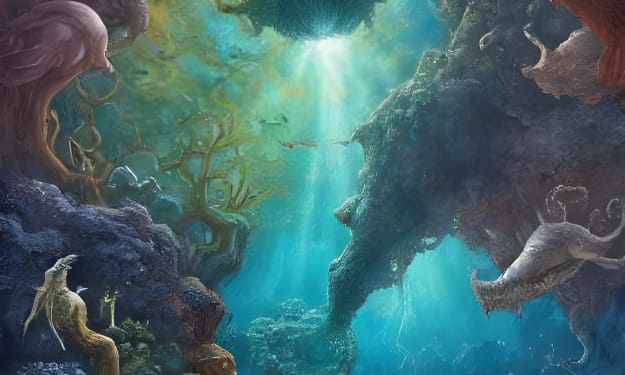
In a world seemingly explored and charted with technologies spanning satellites, the International Space Station, and GPS, it's intriguing to trace back to the era when Earth was an undiscovered canvas. Contrary to the current impression of a well-traversed globe, there was a time when each step was a pioneering venture, unraveling new territories and marking human progress.
The exploration of uncharted lands dates back to the genesis of humanity itself. Emerging in Ethiopia circa 195,000 BC, Homo sapiens' footprints on Earth took tentative steps from this cradle of civilization. The exact chronology of discoveries remains obscured by time, but fossils and archaeological findings offer insights into the broad timeline of human exploration.
Initially, from Ethiopia, humans ventured toward Sudan, reaching this neighboring territory approximately 140,000 to 160,000 years ago. Gradually, the journey continued southwards, arriving at the tip of Africa around 125,000 years ago, while simultaneously embarking on maritime expeditions toward modern-day Yemen.
The adventurous spirit of Arabian-based humans led them to Israel 100,000 years ago and Oman between 75,000 and 125,000 years ago. Meanwhile, Africa witnessed the progression of exploration, with humans marking their presence in the Democratic Republic of the Congo around 90,000 years ago.
Simultaneously, Asia beckoned exploration, welcoming humans to India 70,000 years ago and the Philippines at 67,000 years ago, signifying their initial forays into Oceania. The discovery continued as humans reached Taiwan and Egypt 50,000 years ago.
A significant leap in exploration unfolded as humans made landfall in Australia 48,000 years ago. This populace remained isolated from the rest of humanity until the arrival of Captain James Cook in 1770, ushering in new encounters and cultural exchanges.
Moving forward in the timeline, human presence was established in Japan 47,000 years ago, followed by arrivals in Laos, Indonesia, and Greece. The European exploration scenario emerged around 43,000 years ago, bypassing France and directly reaching the United Kingdom and Germany.
Across the vast expanse of Asia, discoveries unfolded, unveiling China 39,000 to 42,000 years ago, Tasmania at 41,000 years ago, and New Guinea 40,000 years ago. Subsequently, humans ventured into Sri Lanka at 34,000 years ago and eventually discovered North America, crossing the land bridge around 25,000 to 40,000 years ago.
Europe witnessed considerable exploration, encompassing France, the Czech Republic, Romania, Poland, and Russia by 28,000 years ago. The Mediterranean territories, including Portugal and Sicily, saw human settlement around 24,500 and 20,000 years ago, respectively.
Meanwhile, South America's exploration commenced as humans settled in Chile around 14,800 years ago, marking the continent's earliest known remnants. This epoch of discovery gradually unfolded into the era of European exploration.
Portuguese expeditions left their imprints on Madeira, Azores, Cape Verde, and other islands, followed by Spanish encounters with the Bonin Islands. European voyagers set foot on Bermuda, Mauritius, and the Falkland Islands, among others, expanding the known world through the late 18th century.
Notably, Madagascar remained untouched until 500 AD, with settlers arriving from Borneo, across the Indian Ocean, rather than from the African mainland. This intriguing journey across vast waters mirrors the sheer determination and innovation of early explorers.
The last significant habitable landmass discovered was New Zealand, witnessing the arrival of the Maori Polynesians between 1250 and 1300 AD, culminating the era of extensive human exploration.
The grand era of European voyages continued, marking the discovery of remote islands like Svalbard and Tristan da Cunha. Eventually, the last great landmass, Antarctica, was visually sighted in 1820 by a Russian explorer, although human landing didn't occur until 1895.
In a span from 195,000 BC to 1895 AD, humans journeyed across continents, islands, and remote lands, leaving imprints on every corner of the planet. With each discovery, cultures collided, histories intertwined, and humanity's unyielding curiosity forged new paths across the globe.
This brief retelling merely scratches the surface of the vast narrative of human exploration. It unveils the tenacity, innovation, and unrelenting spirit that led us to traverse and uncover the Earth's hidden realms.
As we reflect on this historical odyssey of discovery, we stand in awe of the bold footsteps that paved the way for our global interconnectedness. Human exploration, an eternal quest, continues to unravel mysteries and shape our understanding of the world.
Thank you for delving into this historical voyage of human discovery. If this exploration sparked your interest, share your thoughts in the comments below. To stay updated on more informative content, subscribe to this Vocal Account. Discover more compelling narratives by exploring other stories here. Your journey into the world of exploration has just begun.
This detailed narrative outlines the various milestones and discoveries made by humanity across millennia, showcasing the unwavering spirit of exploration and discovery that has shaped our understanding of the world. If you need any specific alterations or more details on certain discoveries, feel free to let me know!
About the Creator
Nico Cox
Student in Sports and Exercise Sciences, but filled with interest and curiosity about the world, astronomy, natural catastrophes, and political sciences. Writing for fun and out of personal interest. Enjoy the read!






Comments
There are no comments for this story
Be the first to respond and start the conversation.